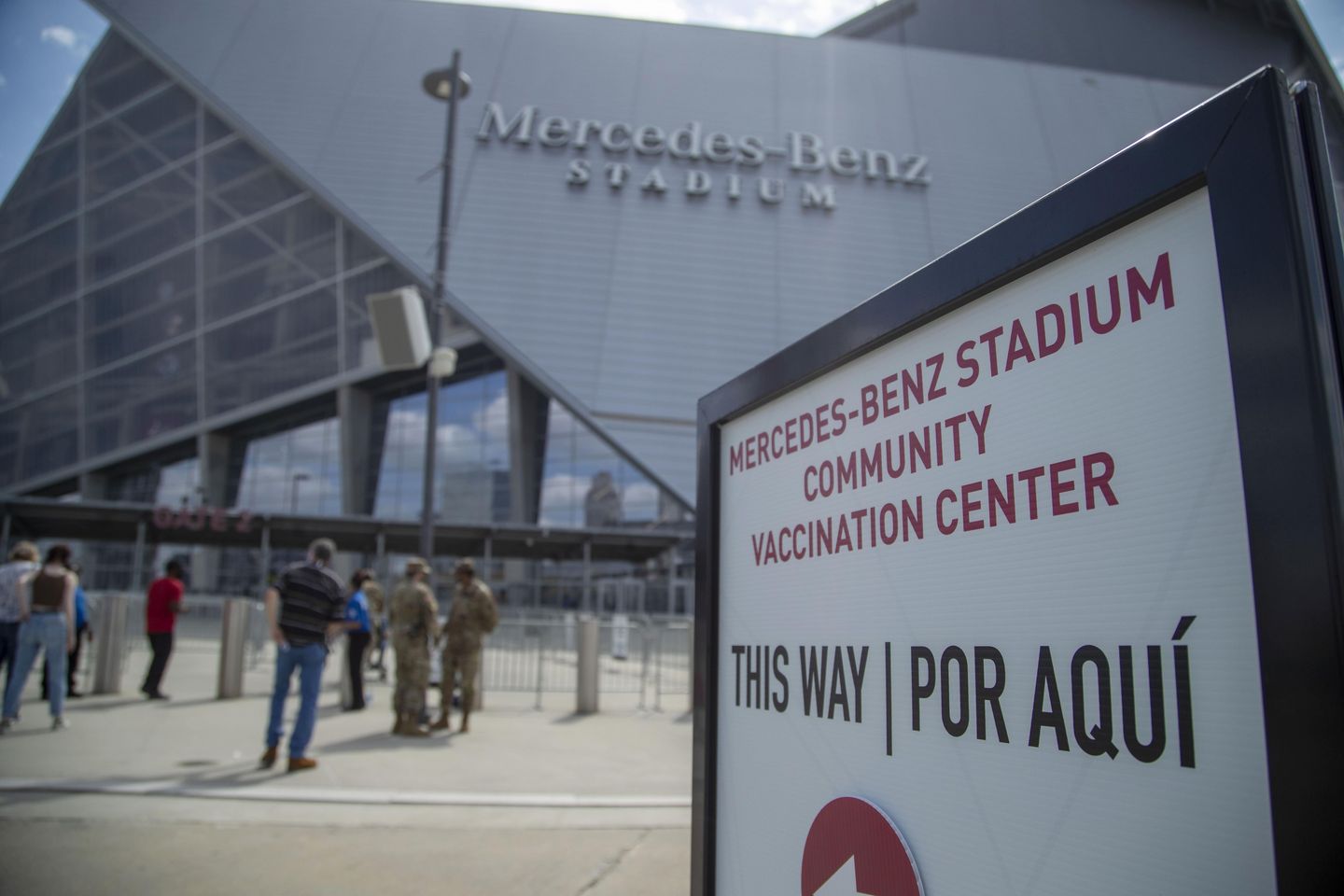[ad_1]

ATLANTA (AP) – Gov. Brian Kemp is declaring that “Georgia is open for business” as of Thursday, loosening the restrictions he imposed last year to control the spread of the coronavirus by letting people sit closer together at restaurants and gather in larger crowds.
The Republican governor changed Georgia’s rules despite urgings from the U.S. Centers for Disease Control and Prevention and President Joe Biden that states should keep curbs on unmasked close contact among strangers. They warn that more infectious virus variants now spreading across the United States could cause another spike in cases and deaths.
Kemp portrays his new executive order as part of an effort to return to “normal,” continuing to emphasize that economic health is as important as freedom from the respiratory illness that has killed more than 19,000 Georgians.
“Many small business owners are still struggling under the impact COVID-19 has had on our economy,” Kemp said in a recorded video message Wednesday. “And we know hard-working Georgians cannot endure another year like the last.”
Federal officials acknowledge that people have “COVID-19 fatigue,” but say it’s too soon to stop being careful.
“We’re really on the brink of a surge,” Dr. Anthony Fauci, director of the National Institute of Allergy and Infectious Diseases, said Tuesday. “That would be a setback for public health, but that could be a psychological setback, too … we just don’t want to have to go back to really shutting things down.”
Under Kemp’s new order, restaurant tables now must be only 3.5 feet (1.07 meters) apart without partitions, instead of the previous 6 feet (1.83 meters), and there’s no longer a 50-person limit on gatherings when people are closer than 6 feet, which could allow larger indoor concerts and conventions. He also says vulnerable residents no longer have to stay home under a shelter-in-place order.
But it’s not clear if restaurants will be rushing to reopen their self-serve drink stations, if fitness instructors will quickly allow their students to be 6 feet apart instead of the previous 10 feet (3.05 meters), and if movie theaters will let people get as close as 3 feet (0.91 meters).
Some business owners say they don’t intend to change much for now.
“We’re going to stay the way we’re operating,” Randy Parks, who operates Folk Art restaurants in Atlanta and Decatur, told WAGA-TV. “It’s working. We’re able to pay the bills and keep everybody paid, so I don’t see a reason for us to rush into it.”
Others, though, say they’re considering letting customers get closer together. Wendy Bennett, who co-owns Kool Vibes Pizza & Wings in Savannah, said she’s looking forward to allowing more customers inside.
“It would really help us,” Bennett told WTOC-TV. “People would be a lot more comfortable to come in and sit down and just chill and eat, listen to the music, stuff like that.”
Georgia has recorded more than 1 million cases of the virus, but newly recorded cases continue to fall. The state has been averaging less than 1,400 new cases detected in recent days, the lowest level since last June. The number of newly-reported deaths still remains above the level of the December-January surge, but some of those deaths weren’t recent. The share of positive genetic tests for the virus has been below 5% in recent days, for the first time since widespread testing began last March.
But the share of Georgians who have been vaccinated remains among the lowest nationwide. Only 28% of Georgians have received at least one dose, the third worst among U.S. states and below the national average of 33%, according to CDC numbers. That’s far short of the 70% or more that many experts say would achieve the herd immunity needed to protect people still vulnerable to infection.
Georgia’s records show 4.35 million doses have been administered, while more than 1 million doses have been shipped and remain unused.
Some experts fear Kemp is sending a dangerous message when so many people remain unvaccinated.
“While the easing of the last remaining restrictions will put essential workers at an elevated risk, I think the message this sends will have broader impacts for the state as well,” wrote Amber Schmidtke, an epidemiologist who writes a briefing on Georgia’s epidemic. “It will lead to a false sense of security among the population that the pandemic is over.”
Georgia never had a statewide mask mandate, despite repeated appeals from some medical professionals. After initially prohibiting them, Kemp eventually allowed cities and counties to impose mask requirements, if their local area was recording a significant number of cases. Some places, such as Tift County, are considering rolling back mask requirements. Other places though, including Chatham County, have extended their mask mandates.
Kemp’s new order also says police can’t shut down businesses that don’t follow the remaining rules. Owners and employees could still be cited, but a Georgia State Patrol spokesperson told The Atlanta Journal-Constitution that the agency has issued only 21 citations after answering more than 3,400 calls regarding violations.
The public health emergency giving Kemp sweeping powers has been in effect since March 14, 2020, and will last through at least April 30.
[ad_2]